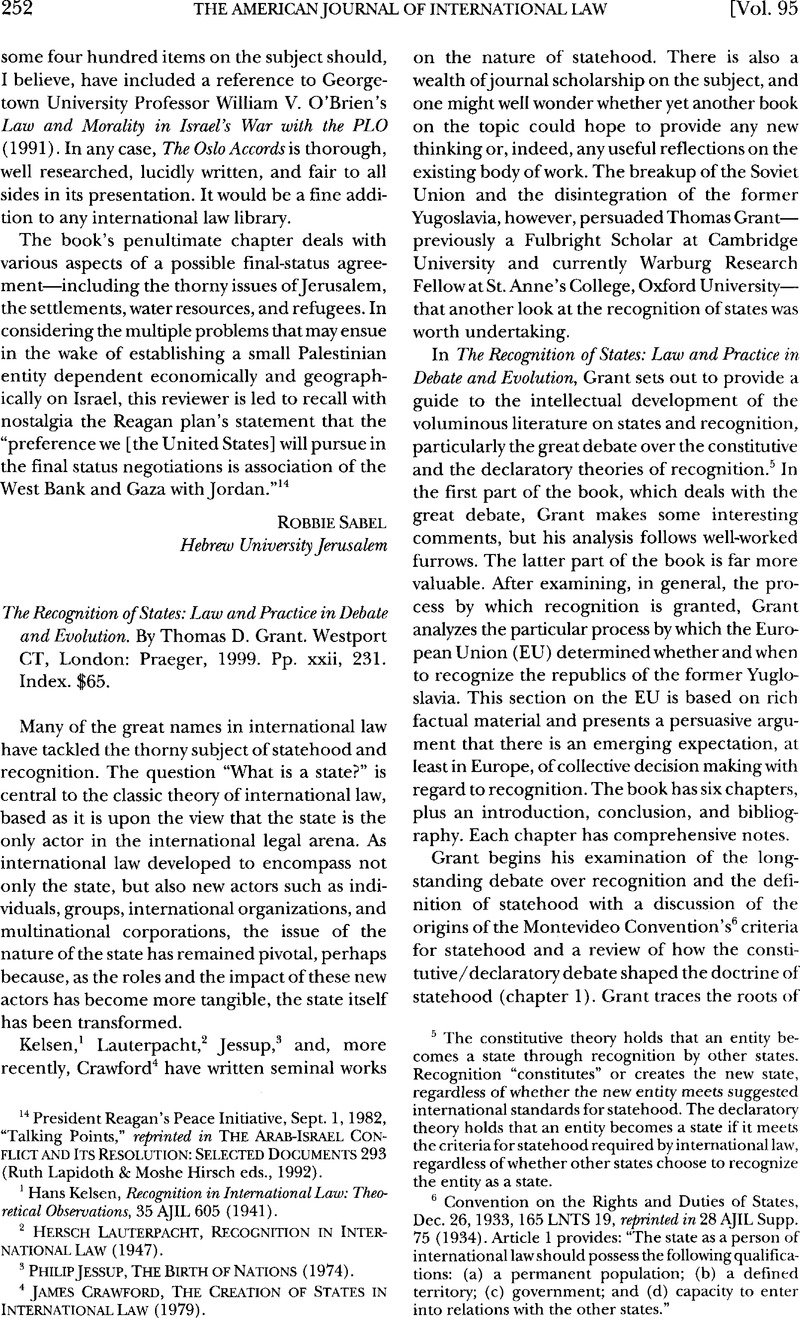No CrossRef data available.
Article contents
The Recognition of States: Law and Practice in Debate and Evolution. By Thomas D. Grant. Westport CT, London: Praeger, 1999. Pp. xxii, 231. Index. $65.
Published online by Cambridge University Press: 30 March 2017
Abstract

- Type
- Book Reviews and Notes
- Information
- Copyright
- Copyright © American Society of International Law 2001
References
1 Kelsen, Hans, Recognition in International Law: Theoretical Observations, 35 AJIL 605 (1941)CrossRefGoogle Scholar.
2 Lauterpacht, Hersch, Recognition in International Law (1947)Google Scholar.
3 Jessup, Philip, The Birth of Nations (1974)Google Scholar.
4 Crawford, James, The Creation of States in International Law (1979)Google Scholar.
5 The constitutive theory holds that an entity becomes a state through recognition by other states. Recognition “constitutes” or creates the new state, regardless of whether the new entity meets suggested international standards for statehood. The declaratory theory holds that an entity becomes a state if it meets the criteria for statehood required by international law, regardless of whether other states choose to recognize the entity as a state.
6 Convention on the Rights and Duties of States, Dec. 26, 1933, 165 LNTS 19, reprinted in 28 AJIL Supp. 75 (1934). Article 1 provides: “The state as a person of international law should possess the following qualifications: (a) a permanent population; (b) a defined territory; (c) government; and (d) capacity to enter into relations with the other states.”
7 Quoting Marshall Brown, Philip, The Recognition of Israel, 42 AJIL 620, 621 (1948)Google Scholar. Although Brown is himself referring specifically to the doctrine of recognition— not to international law, in general—Grant uses the quotation as a means of characterizing a particular view of international law—and not just recognition.




